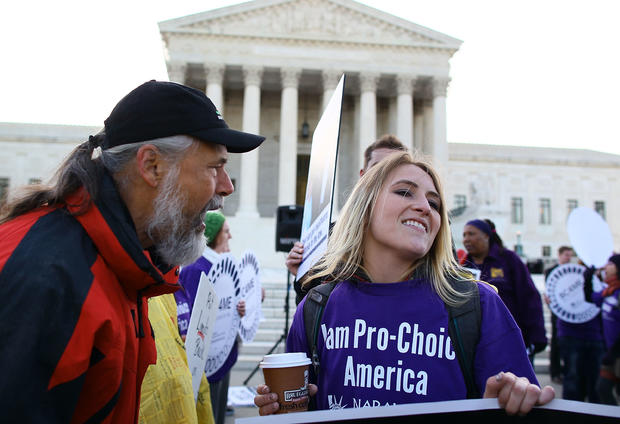Scott Walker: "No doubt" striking down health law would help economy
(CBS News) Should the Supreme Court overturn President Obama's health care law this month, there's "no doubt it would provide greater stability for employers," Wisconsin's Republican Gov. Scott Walker said in Washington Wednesday.
Still, the controversial governor added, "[e]ven if that were to happen, we can't go back to the way things were before."
Walker was one of a handful of governors who were in Washington for a jobs summit hosted by the U.S. Chamber of Commerce. All agreed that the looming court case is part of the current "uncertainty" in the market inhibiting economic growth.
Nebraska Gov. Dave Heineman, a Republican, said he'd prefer for the court to overturn the law -- as long as it overturns all of it.
"I hope they either rule it constitutional or rule it unconstitutional -- anything in between will create more uncertainty, more complexity," the governor said.
The Supreme Court is expected to hand down its ruling by the end of this month. It could choose to uphold the law, reject the entire package or reject parts of it, including the requirement for all Americans to purchase insurance.
Heineman said that if the court rejected parts of the law, other elements would be left in place without the appropriate federal funding, such as expanded state Medicaid requirements.
Democratic Gov. Jack Markell of Delaware said his state is moving forward with implementing the state requirements.
"No one thought that the status quo before the Affordable Care Act was acceptable," he said. "If the Supreme Court rules against it, it's not like we can't go back to the way it was -- the way it was was miserable for employers."
Walker said the federal government has a role to play in health care reform by enforcing transparency in the market.
"The more we make things transparent, the better off we are," he said.
Under President Obama's law, each state is required to set up an "exchange," or transparent marketplace from which consumers can compare and purchase insurance plans. At least 17 states, according to the Washington Post, have been working to build the exchanges. Some Republican-led states have delayed the process, awaiting the Supreme Court's decision. Under the law, if a state doesn't have its exchange set up by 2013, the federal government will run it for them.
